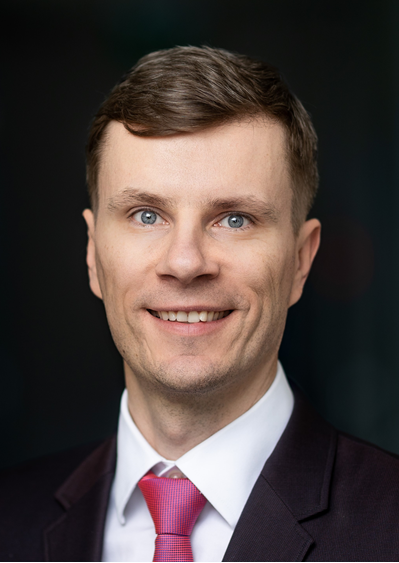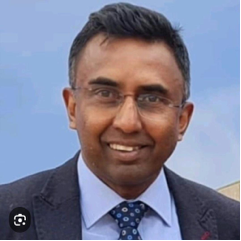
Speakers

Ranadeva Jayasekera
PhD Ranadeva Jayasekera is a professor of Accounting the Trinity Business School, University of Dublin, and an associate in Finance at the Judge Business School, University of Cambridge. He also serves as a Lead researcher in Accounting at the Vilnius University, Lithuania, visiting Professor at Poznan Economics University (Poland) and Linkoping University (Sweden). He is widely published with over 25 publications in highly ranked international refereed journals (all of which are ABS ranked 3 and 4). His current research interests include intersections of climate finance, Environmental Accounting, Real options, risk management, renewable energy, Accountability and Existentialism.
Call for Urgency in this Environmental Emergency; A tool to understand the impact of Emissions
We see that there is an unambiguous corelation (and plausible causality) between the increase in the wealth creating human activity and the increase in the CO2 emitted to the atmosphere, where science alarmingly tells us the planet will not be habitable for human life if the global temperature rises above 2 degrees Celsius relative to the preindustrial levels. Tregida and Laine (2022), see a lack of urgency in our response to this climate / environmental emergency and call for research to investigate on the type of environmental accounting numbers would serve in creating positive intervention in societies. I propose one such measure capable of revealing the true value of the emissions data reported by firms. The proposed method is robust and flexible and demonstrates how successful a firm is in reaching it’s net zero targets through the reported emissions figures. This study has important implications to policy makes, lenders and other stakeholders. The measure has managerial implications as well since it can be used as a basis for performance measurement and structuring rewards or academics can use it to test the validity of theories and highlight firms engaged in Greenwashing.

Jonas Balsys
Jonas is a tenured consultant and a trusted adviser to many business leaders. He accumulated diversified experience in professional services and finance over a successful 20 years' career, including 8 years spent in the world’s leading hubs of Silicon Valley, California, U.S. and London, U.K. Currently Jonas leads the Broader Assurance Services business unit at PwC Lithuania. He is the market-leading technical accounting & external reporting expert and focuses on execution of capital markets transactions, accounting advisory, internal controls and ESG propositions, while also often supporting other countries in the Baltics and the broader CEE region.
Raising the bar for qualify of sustainability information - are companies prepared to withstand external audit scrutiny?
Today companies are no longer evaluated only based on financial information. Sustainability reporting standards are improving, and the EU Corporate Sustainability Reporting Directive will oblige many companies not only to submit sustainability reports, but also to obtain mandatory assurance from auditors on sustainability information. So far, the quality of sustainability information and the level of maturity of the processes and internal controls used by companies to prepare such information is significantly lower than that of financial information, although the requirements according to European Sustainability Reporting Standards and the expectations of market participants are the same. Therefore, it is important for companies to pay more attention to sustainability reports now, which will help them better prepare for the audit in the near future. Similarly, auditors need to upskill and develop methodologies on how to audit sustainability information which is inherently different from financial information.

Jonas Akelis
Jonas has been the Managing Partner of EY in the Baltic States for many years and currently is EY’s Central and Southeast Europe North Cluster Leader for Poland, Ukraine and the Baltic States. As a senior assurance partner Jonas has over 32 years of experience in audit and other assurance engagements, reorganization and privatization, transactions, strategy and performance improvement engagements with local and international companies in Energy and Utilities, Financial Services, Technology, Communications, Media and Entertainment, Transportation, Production and other industries.
Jonas is also a Certified Public Auditor of the Republic of Lithuania and a fellow member of the ACCA (UK). He has been a board member of the Investors’ Forum in Lithuania since 2009. Jonas earned a Master’s degree in Accounting and Auditing from Vilnius University, Lithuania.
The Reinvention of Audit Methodologies and Practices Through the Adoption of New Technologies
It is truly exciting to see the way technology is revolutionizing the landscape for preparers of financial reporting and equipping auditors with powerful tools to ask better questions and carry out a number of audit procedures in a way that was never possible during the whole history of our profession. Artificial Intelligence and other revolutionary technologies will continue revolutionizing the audit industry and helping auditors to analyze huge amounts of data in an efficient, anomaly-detective as well as predictive manner, and help them provide valuable insights to their clients. At the same time, technology is making the skills our profession is built on - independence, objectivity, and critical thinking - even more valuable. This noble profession should be proud for what it is doing to position the audit teams to continue to promote trust within our economies and thrive in this dynamic and exciting work environment.

Jonas Drasutis
Jonas is a seasoned professional with a proven track record in both traditional finance and the FinTech industry. He holds a Bachelor's degree from Vilnius University and a joint Executive MBA from ISM and KTU. Jonas is also a fellow member of ACCA. Currently, he serves as Country Manager & Chief Financial Officer at Nikulipe, a global FinTech company simplifying cross-border payments and enhancing access to fast-growing and emerging markets for PSPs and merchants.
With over 10 years of experience, Jonas has led assurance projects for SMEs and PLCs across the EU. In recent years, he has played a pivotal role in scaling FinTech start-ups by developing business models that drive impact, financial sustainability, and customer value.
AI’s role in education
Jonas’s session will offer a dual focus, merging his expertise in FinTech and finance with insights into AI’s role in education. His presentation will explore how artificial intelligence is transforming finance education and professional training, particularly in helping accountants and finance professionals adapt to rapidly advancing technology. By leveraging AI-driven learning models, ACCA and other institutions are creating adaptive, data-rich educational experiences that personalize learning, track progress, and enable deep specialization in areas like digital literacy, data science, and financial analysis.
Additionally, Jonas will dive into practical applications of AI in professional development, such as machine learning for skill assessments, intelligent tutoring systems, and virtual simulations. These technologies are reshaping how finance professionals build their careers, enabling a responsive education model that aligns closely with industry demands. He will also discuss the importance of responsible AI in education, with a focus on balancing technical skills with ethical considerations to build trust in AI-enhanced learning environments.

Kelum Jayasinghe
Kelum Jayasinghe is a Professor in Accounting and Development Policy, at the University of Sheffield, UK. He has worked as an expert panel member of the working group established for the development of UN's Sendai Framework Words into Action implementation guides for accountability and governance, UNSIDR; and conducted many contract-research projects to World Bank and UK local governments. Kelum is globally known as a critical researcher in accounting and development policy. His international visibility is evidenced in his extensive profile of publications in reputed journals, including Accounting, Auditing and Accountability Journal (AAAJ); Critical Perspectives on Accounting (CPA); Accounting Forum etc.
Beyond NPM/NPG in public sector accounting research - ‘Publicness’ and ‘Localised-led development’
The blending of ‘publicness’ and ‘localised-led development’ discourses in public sector accounting scholarship will allow researchers to undertake significant studies across all contexts which were inadvertently marginalised or neglected previously. Therefore, it is important to advance our conceptualisations of building on ‘publicness’ and ‘localised-led development’ as theoretical approaches. First, there is a need for widening the scope of public sector accounting research, connecting it with public administration, policy, and practice, and enhancing its theorising by focusing on “publicness” as a concept, or a series of concepts in order to cover generic umbrella terms such as neoliberalism. Second is the embracement of the notion of development. Recent studies in developing countries, demonstrate that neoliberal oriented public sector accounting reforms had unintended consequences, including the marginalisation of relatively ‘good’ accounting practices at mundane levels. Similarly, in the West, there were some forced accounting reforms with such unintended consequences, especially in localised practices within organisations and extra-organisational apparatuses . Hence, the notion of development has become more an analytical content despite the context in which such reforms take place. Moving forward, the notion of publicness can thus be a useful phenomenon for a better understanding of how accounting reforms are implicated in localised development and the consequences thereof. Such possibilities may lead
International Scientific Conference
Accounting, Audit, Analysis:
The Modern Economic, Technological and Societal Trends: New Challenges or Opportunities
The aim of the conference and the associated special issue is to further our understanding of audit, accounting, analysis, accountability and governance practices given the recent changes in economic, technological and societal trends in the world in general and the Central and Eastern European Nations including the Baltics, in particular.
The conference will explore how these trends are transforming the fields of accounting, audit, accountability, governance, business analysis, and management, while evaluating their dual role as both a challenge and an opportunity for the future of science and business.
Main topics of the conference include, but not limited to:
I. Trends of Development in Accounting Science and Practice
- The Evolution and Advancement of Accounting Thought and Research in General and Central and Eastern European Nations Including the Baltics.
- Accounting History, the Development of Accounting Practice and Regulations of Private and Public Sectors in the Central and Eastern European Nations Including the Baltics.
- The Transformation and Evolution of Accounting Studies in the Age of Advanced Technologies, Shaping the Future of the Profession.
- Accounting Professionals' Experiences and Attitudes in the Accounting Profession in the Central and Eastern European Nations Including the Baltics.
II. The Modernization and Advancement in Science and Practices of Audit, Assurance, Corporate Governance
- The Reinvention of Audit Methodologies and Practices Through the Adoption of New Technologies.
- Audit History, the Development of Audit Practice and Regulations of Private and Public Sectors in the Central and Eastern European Nations Including the Baltics.
- The Transformation of Internal Audit: Revolutionizing the Internal Control System with Innovative Approaches and Opening New Prospects.
- The Extent of Sustainability Accounting, Assurance, and Reporting Practices, the Role of Governance Structures on Corporate Disclosure and Reporting in the Central and Eastern European Nations Including the Baltics context.
- The Transformation and Evolution of Audit Studies in the Age of Advanced Technologies, Redefining the Future Trajectory of the Profession.
III. Advancing Financial Analysis Sciences and Business Management in the Age of Technological Transformation
- The Development of Traditional and the Formulation of New Approaches in Financial Analysis, Business Performance Assessment Science, Management Processes, and Business Practices.
- The Metamorphosis of Management Accounting Research: Encompassing Novel Methodologies and Future Possibilities.
- Management Accounting, Control and Digitalization in Organizations.
- Challenges Faced in the Field of Management Accounting in Central and Eastern European Nations Including the Baltics.
IV. Role of Audit, Accounting, Accountability Management and Governance Structures in Addressing the Challenges of Environmental Issues and Climate Change
- The Development of Environmental, Social and Governance (ESG) Reporting, Interplay of Gender and Culture of Boards Facing Environmental and Climate Change Challenges in Accounting, Audit, Accountability and Governance Context.
- Developments and Challenges in the Field of Environmental Accounting; Assistance of Technology the Accounting Profession in Addressing the Environmental and Climate Change Issues.
- Accounting for Disaster, Extinction, Biodiversity, Climate Change, and Climate Justice in Central and Eastern European Nations Including the Baltics.
- Social, Health and Environmental Accounting (SEA), Including Sustainable Development Goals (SDGs), in Central and Eastern European Nations Including the Baltics.
- Accounting for Housing, Homelessness, Human Rights and Accountable Institutions, Including Judicial Accountability and Accounting for Social Justice in Central and Eastern European Nations Including the Baltics.
Conference language - English.
Conference takes abstracts.
The abstracts submission language - English.
Conference abstracts will be issued in conference proceedings (https://www.journals.vu.lt/proceedings).
In addition, full papers of selected abstracts will be published in a special issue of Journal of Financial Reporting and Accounting - „Challenges and Opportunities in Science and Business: The Impact of the Trends in Economics, Technology and Society on Accounting, Audit, and Analysis“ (Link)
